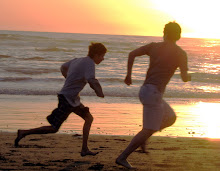Having watched Social Network I came away struck not only by the squalid culture in which Facebook was born, but more by the feeling of having been drawn into somebody's personal drama, 'my own private Eliot House', and from there into a childish ambition to create a gated community where the standard of living is not related to quality of life.
Whatever the new functionalities — however Facebook is becoming the universal dashboard and throttle to drive your online identity, it's not about building 'social capital', which is a good and necessary thing. This is something else. It's about building the biggest country club. It's about persuading people that they are a measure of their 'social graph' — that there is little more important than being able to look over the backyard of yourself and say, 'my, don't I have a long list of friends!'.
And you wonder, who are all these friended people? How many do I really know?
In fact, this social graph is a measure of the size of your phone book. That's cockspeak for advertisers, and you'll remember, advertising was not part of the original offering with mashbook.
But what about this obsession with being social? And what has the word come to mean? 'Being social' was once a rite of passage, perhaps more common in the suburbs, but always a test of maturity, an unwelcome obligation to some, where you reached out to people, for good reason or bad, but you faced them. At a dance, a wedding, over a martini at a restaurant, or a tea party at home. The risk was that you would be rejected, that having exposed yourself you would not be included in the local society.
But now in these new realms you can escape rejection because you don't face anyone. You are merely a persona, invulnerable to your girlfriend's truth, that you can be smart AND an 'asshole'.
In the new East Indies it's about your persona not your person. It's about tarring over every last bit of free time and quiet with noise and distraction, functionality and illusion, and the strange conviction that you are a user, not one of the used.
(The question of FB's social significance is also part of the broader issue of how these different messaging tools affect political action. Here's an interesting article in that regard: http://nerizilber.com/2010/11/08/why-malcolm-gladwell-is-wrong-about-social-media-the-leftist-review/ )
Nov 15, 2010
Subscribe to:
Post Comments (Atom)

No comments:
Post a Comment